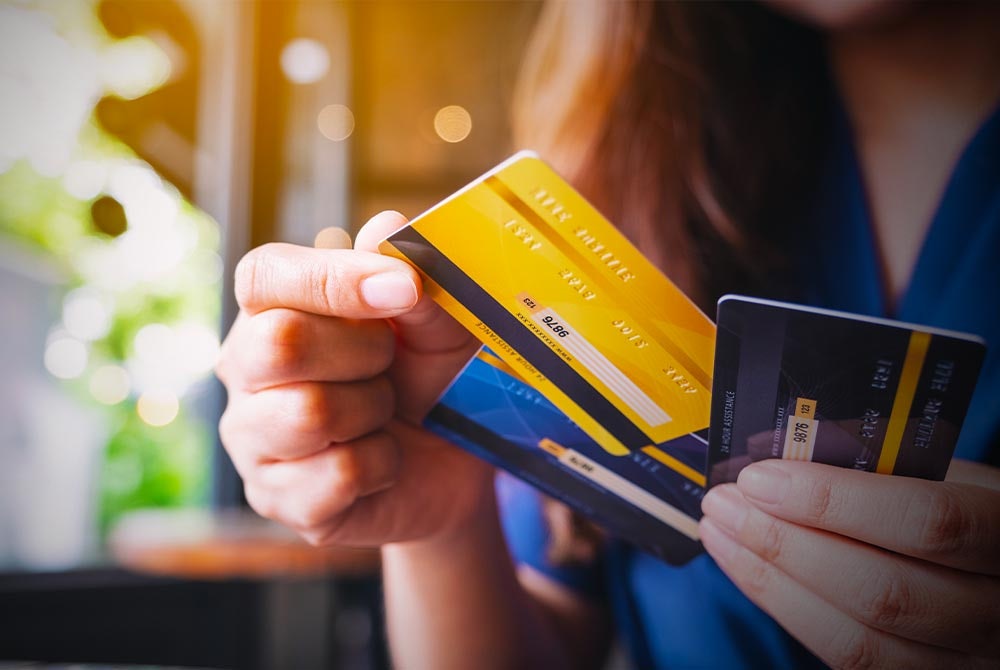Online banking has become a convenient and efficient way to manage your finances in today's digital world. However, with this convenience comes the risk of online threats and cybercriminals constantly looking for ways to gain unauthorised access to your bank account. To ensure the safety of your hard-earned money, it is crucial to take proactive measures to protect your online bank account. This article will discuss the importance of online bank account security and provide you with best practices and tips to keep your bank account safe online.
The Importance of Online Bank Account Security
Online bank account security is of utmost importance in today's technological landscape. With the increasing number of cyber-attacks and data breaches, it is essential to understand the potential risks and take necessary precautions to safeguard your financial information. Keeping your bank account safe online can prevent unauthorised access, identity theft, and financial loss with swissmoney.
Common Online Threats to Bank Accounts
To protect your bank account effectively, it is important to be aware of the common online threats that can compromise your financial security. One such threat is phishing scams, where cybercriminals trick individuals into revealing their sensitive information by posing as legitimate institutions. These scams often come in the form of emails, text messages, or phone calls that appear to be from your bank. Be cautious and avoid clicking on suspicious links or providing personal information to unknown sources.
Another common threat is malware, malicious software that can infect your devices and compromise your bank account security. Malware can be unknowingly downloaded through malicious websites, email attachments, or software downloads. Protecting your devices by installing reputable antivirus software, regularly updating your operating system, and avoiding downloading files from untrusted sources is essential.
Best Practices for Password Security
One of the most important steps you can take to keep your bank account safe online is to ensure strong password security. Weak or easily guessable passwords can make it easier for cybercriminals to gain unauthorised access to your bank account. To create a strong password, consider the following best practices:
- Use upper and lowercase letters, numbers, and special characters.
- Avoid using common words or personal information that can be easily guessed.
- Do not reuse passwords across multiple accounts.
- Regularly update your passwords and avoid using the same password for an extended period
- Consider using a password manager to store your passwords securely.
By following these best practices, you can significantly enhance the security of your online bank account.
Two-factor authentication for Bank Accounts
Two-factor authentication (2FA) is an additional layer of security that adds an extra step to the login process of your bank account. With 2FA enabled, you must provide an additional verification code, usually sent to your mobile device and your password.
This adds extra protection, as even if your password is compromised, the cybercriminal would still need access to your mobile device to enter your bank account. It is highly recommended to enable 2FA whenever it is available for your online banking services.
Recognising and Avoiding Phishing Scams
Phishing scams are a common method cybercriminals use to trick individuals into revealing their sensitive information. These scams often appear as emails, texts, or phone calls that impersonate legitimate institutions like your bank. To avoid falling victim to phishing scams, it is important to be vigilant and recognise the signs of a potential scam:
- Look out for emails or messages containing spelling or grammatical errors indicating a phishing attempt.
- Be cautious of urgent or threatening messages that pressure you to take immediate action.
- Avoid clicking on suspicious links or downloading attachments from unknown sources.
- Verify the authenticity of the communication by contacting your bank directly through their official website or phone number.
By staying alert and exercising caution, you can protect yourself from phishing scams and keep your bank account safe online.
Keeping Your Devices Protected from Malware
Malware is a significant threat to the security of your bank account. It is essential to keep your devices protected from malware by following these practices:
- Install reputable antivirus software and keep it updated regularly.
- Regularly update your operating system and other software applications to ensure you have the latest security patches.
- Avoid downloading files or software from untrusted sources.
- Be cautious of pop-up ads and only click on trusted websites.
- Consider enabling a firewall to provide an additional layer of protection.
Implementing these measures can significantly reduce the risk of malware infecting your devices and compromising your bank account security.
Monitoring Your Bank Account Regularly
Regularly monitoring your bank account is important in keeping it safe online. By closely monitoring your account activity, you can quickly identify unauthorised or suspicious transactions.
Set up notifications or alerts with your bank to receive real-time updates on your account activity. If you notice any unusual activity, immediately contact your bank to report the issue and take the necessary steps to secure your account.
How to Handle Suspicious Activity on Your Bank Account
Taking immediate action to protect your finances is crucial if you encounter suspicious activity in your bank account. Here are the steps you should follow:
- Contact your bank immediately to report the suspicious activity and inform them of unauthorised transactions.
- Change your passwords for your online banking account and any other accounts that might be affected.
- Monitor your credit reports to ensure no fraudulent activity in your name.
- Consider placing a fraud alert or credit freeze on your credit file to prevent further unauthorised access.
- Record all communication with your bank and any relevant authorities for future reference.
By taking swift action, you can minimise the potential damage caused by suspicious activity on your bank account.
Additional Security Measures for Online Banking
In addition to the aforementioned best practices, there are additional security measures you can take to enhance the safety of your online banking further:
- Regularly review your bank statements and account activity to ensure accuracy and identify any discrepancies.
- Enable transaction alerts to receive notifications for any transactions made on your account.
- Be cautious when using public Wi-Fi networks, as they can be vulnerable to hackers. Avoid accessing your bank account or conducting financial transactions on unsecured networks.
- Consider using a virtual private network (VPN) when accessing your bank account remotely to encrypt your internet connection and add an extra layer of security.
- Keep your devices, such as smartphones and tablets, locked with passcodes or biometric authentication to prevent unauthorised access.
By implementing these additional security measures, you can protect your online bank account from potential threats.
Conclusion
In conclusion, keeping your bank account safe online is paramount in today's digital age. Understanding the potential risks and implementing best practices for online bank account security can significantly reduce the risk of unauthorised access, identity theft, and financial loss. Remember to prioritise strong password security, enable two-factor authentication, recognise and avoid phishing scams, protect your devices from malware, regularly monitor your bank account, and take immediate action in case of suspicious activity. By following these guidelines, you can enjoy the convenience of online banking while ensuring the safety of your hard-earned money. Stay vigilant, stay secure!


No comments yet